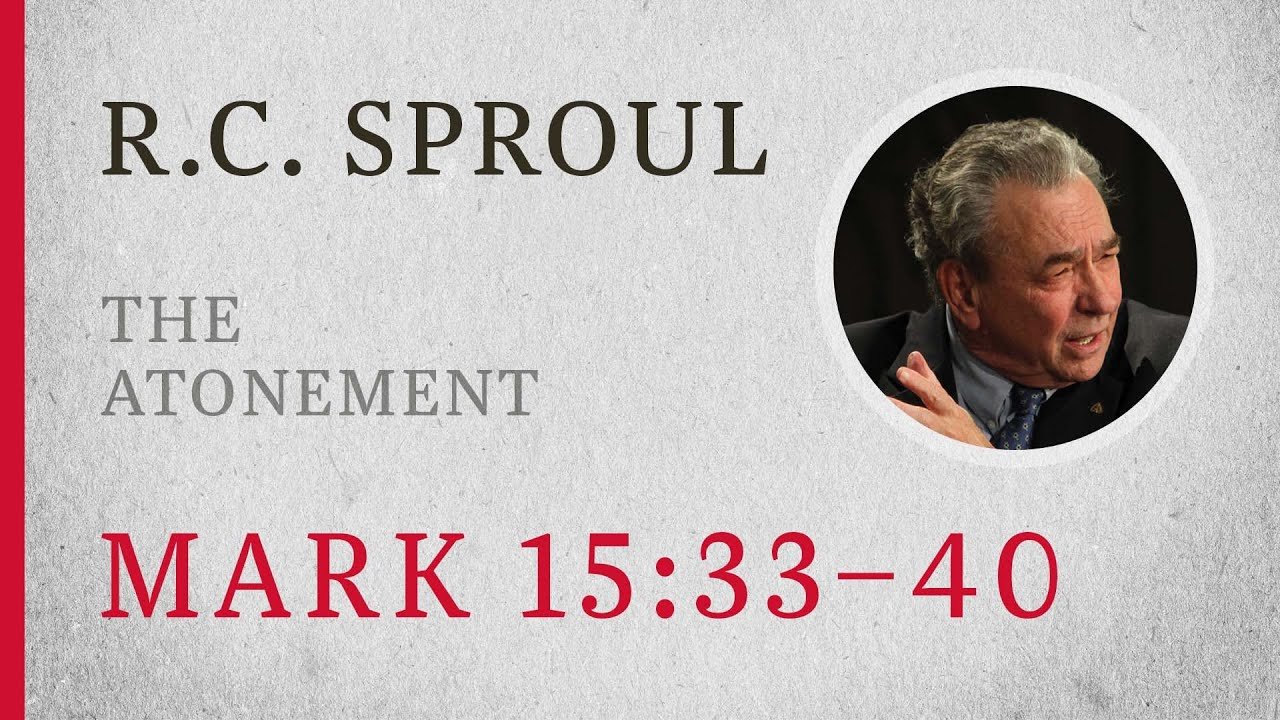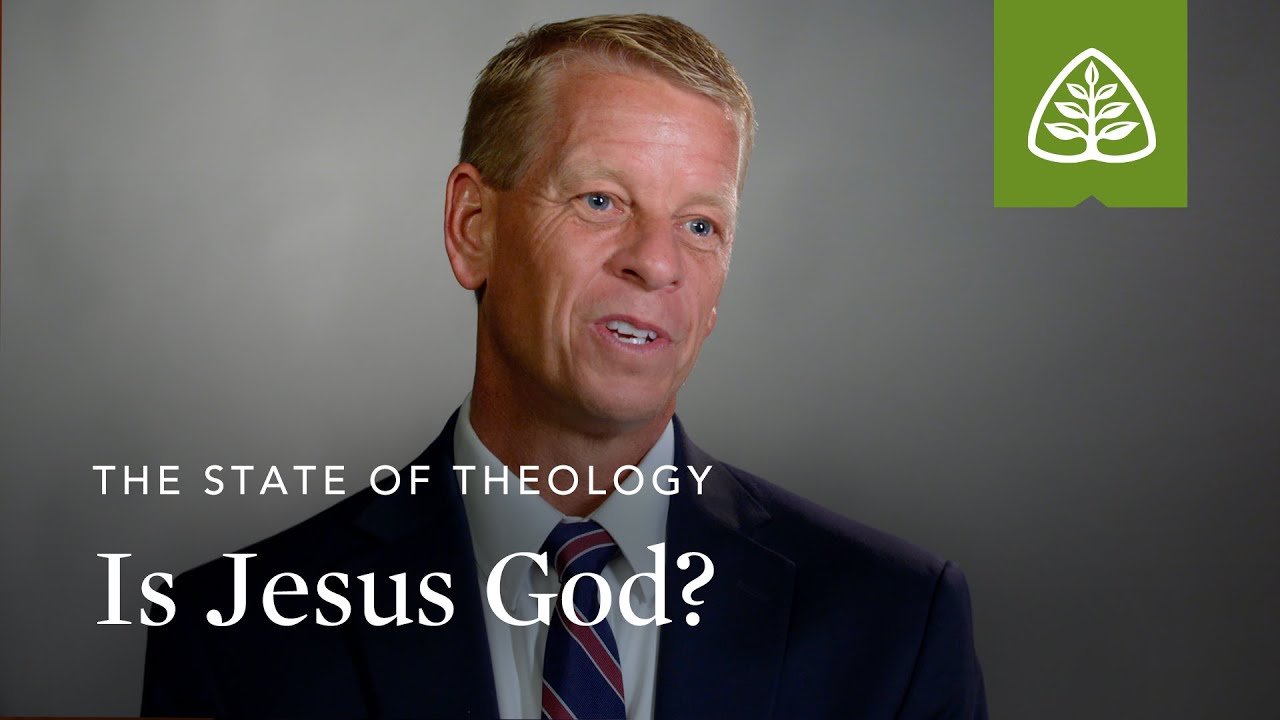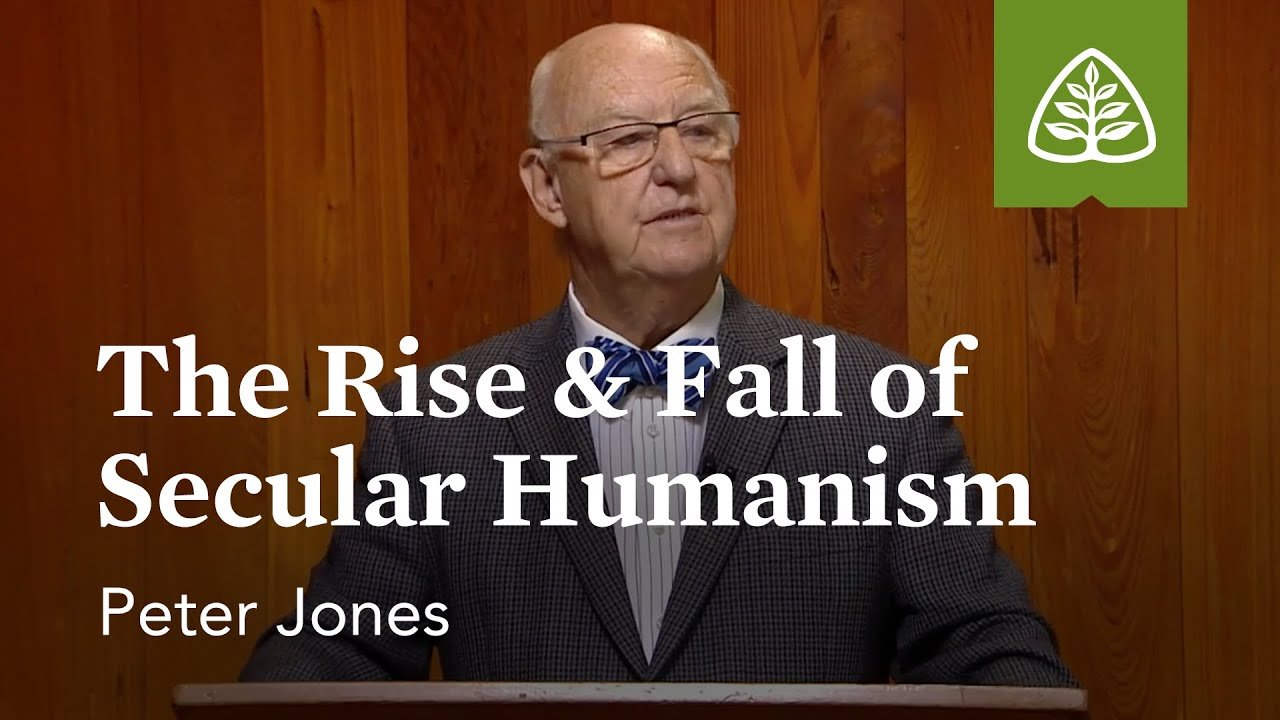SPROUL: Let’s look this morning at Mark, chapter 15 where I’ll be reading again the later portion of the text we looked at last week. I’ll be beginning at verse 33 and reading through verse 40. And I’d like to ask the congregation to stand for the reading of the Word of God.
“Now when the sixth hour had come, there was darkness over the whole land until the ninth hour. And at the ninth hour Jesus cried out with a loud voice, saying, ‘Eloi, Eloi, lama sabachthani?’ which is translated, ‘My God, My God, why have You forsaken Me?’
Some of those who stood by, when they heard that, said, ‘Look, He is calling for Elijah!’ Then someone ran and filled a sponge full of sour wine, put it on a reed, and offered it to Him to drink, saying, ‘Let Him alone; let us see if Elijah will come to take Him down.’
And Jesus cried out with a loud voice, and breathed His last. Then the veil of the temple was torn in two from top to bottom. So when the centurion, who stood opposite Him, saw that He cried out like this and breathed His last, he said, ‘Truly this Man was the Son of God!’
There were also women looking on from afar, among whom were Mary Magdalene, Mary the mother of James the Less and of Joses, and Salome, who also followed Him and ministered to Him when He was in Galilee, and many other women who came up with Him to Jerusalem.”
Again in your hearing this morning, you have heard that word that comes to us from God Himself. He who has ears to hear it, let them hear. Please be seated. Let us pray. Our Father and our God, there is no more important, no more unfathomable treasure for us to contemplate
Than the meaning of the cross, and so we pray that in this hour, you would lend your help to us who are Your frail creatures. Give us insight into the meaning and the significance of our Savior’s death, for we ask it in His name. Amen.
Last week we looked at the narrative of the execution of Jesus by way of my normal method of biblical exposition, but I mentioned that this week I would depart from that and focus on a theological interpretation of the meaning of the cross. Again, I mentioned last week
That anyone who was an eyewitness of that event would likely not understand what was taking place in the cosmic realm that day, and that was left for the apostles in their epistles to give to us that added revelation of the meaning and of the significance of
The death of Jesus. We remember that Paul announced that he was determined to know nothing but Christ and Him crucified, that is Paul’s focus was on the cross, and of course that statement was something of hyperbole, which is a literary form of intentional exaggeration
In order to make a point, but really it’s not too far as an exaggeration that we know Paul knew other things besides the cross; nevertheless, all that he knew and all that he taught had its convergence in that central message of what took place that day on the cross.
I remember my first year of seminary where a student in our class in preaching gave a moving and eloquent sermon on the substitutionary satisfaction view of the atonement. And in that class on preaching, it was customary when the student finished for the professor
Of homiletics to give a critique. And the idea was to be a constructive critique on the art of preaching. But that day the professor was furious, and he glared at the student, and he said, “How dare you preach the substitutionary satisfactory view of the atonement in this
Day and age.” And I heard that and I was thinking within myself, “How dare this professor question the legitimacy of preaching on the satisfaction substitutionary view of the atonement.” What is it in this day and age that makes this central understanding of the cross suddenly
No longer acceptable? And I mused on that for many years to come because when we talk about the satisfaction substitutionary view of the atonement, we’re trying to answer the question: What really happened there on the cross? And one of the questions that attends
That question is the question: Was Jesus death on the cross really necessary at all? And there have been different answers to that question throughout church history. Early on, the Pelagians taught that Jesus’ death and atonement was not necessary at all, that
God could have redeemed His people by many different ways. He simply could have waved His wand of mercy and grace and pronounced His pardon on sinners without such a grizzly method of execution. Others took an intermediate position saying that the cross was hypothetically necessary
But not absolutely necessary. It was only necessary because though God had many ways He could have done it. From all eternity He chose to do it this way and was in agreement with His Son and with the Holy Spirit to reconcile the world by way of an atoning death. And
So the atonement was not necessary “de facto.” It was not necessary “de jure,” that is legally. But it was necessary “de pacto,” that is because an agreement had been reached, a covenant had been made between the Father and the Son, and once that covenant was made, it had to be carried out.
But then the third view, which is the classic orthodox Christian view is that the atoning death of Jesus was absolutely necessary. We reach back in time to one of the greatest thinkers God ever blessed the church with, the philosopher theologian Saint Anselm of
Canterbury, whose little book, “Cur Deus Homo?,” has become a Christian classic, and that little book that is really a question is translated by the words, “Why the God Man?” And in that little book Anselm spelled out the reasons why the cross was absolutely
Necessary. And the grounds and the necessity for Christ offering payment and satisfaction for our sins was to be found in the character of God Himself. The reason why an atonement was necessary, dear friends, is because God is just, because God is righteous, and because God is holy.
But we’ve lost sight of the character of God in our age. We conceive of God some celestial grandfather, a cosmic bellhop who is on duty 24/7 to give us all of our needs. And we allow the love of God to swallow up His justice, to swallow up His righteousness, and to obscure
His holiness, and we think that not only will God forgive all of our sins without an atonement, but we believe that He must do it if He’s really going to be good and loving. And yet at the other side of that coin always stands His holy, righteous, justice that must be satisfied.
I remember the story of Abraham in the Old Testament where he got word that God was about to bring judgment upon Sodom and Gomorrah, which cities clearly invited that judgment from God, and Abraham was concerned about the few innocent folks there in those cities
That might possibly be punished along with the guilty, and so he raised the question to God, “Lord, will you punish the innocent or the righteous with the guilty?” And the reply was God forbid that God would ever do such a thing. And then the statement came
Out of that narrative, “Will not the Judge of all of the earth do what is right?” To ask that question, dear friends, is to answer it because the God of heaven and earth doesn’t know how to do anything except that which is right. The God of heaven and earth has
Never done anything that is wrong. Now according to our sensibilities, there are times in the Scriptures that we object to what God does. I’ve told you before how when I was in my first year as a Christian
As a college student, and I was reading the Old Testament, that I used to pace the halls of my college dormitory long into the night, three o’clock to four o’clock in the morning because I’d never heard of this God that was being revealed to me in the Old Testament.
And all I can remember from that is thinking that wow, if I’m going to be a Christian, I’m going to have to be a Christian because God plays for keeps. If you don’t believe that, let me just direct your attention to one passage in the Old Testament, the passage
That you’ve already heard this morning. When God delivered His law to Moses, after He had rescued His people from slavery and the focus of that law was a prohibition against idolatry. And while Moses was speaking with God on the mountain, Aaron and the people
Made for themselves a golden calf and worshipped it. And the Scriptures tell us that when God saw that, He was outraged, and He demanded satisfaction for that sacrilege, for that work of idolatry. I remind you, dear friends, that that episode in the Old Testament chronicles for us the
Most successful worship service in human history. The attendance that day at the worship of the golden calf surpassed all statistics before or after in Israel. The singing was so lusty, that miles away Joshua hears the music, and he thinks he’s hearing the sound of warfare.
The church was filled to the brim, and the people loved the music as they danced around an idol that distorted the very character of God. Do you think that was the last time that happened in church history? That’s our propensity.
It’s to exchange the God of heaven and earth for an idol and fashion for ourselves a God who requires no satisfaction, who requires no payment for sin. And in a day and age when we preach that God loves all people unconditionally, who in the world needs an atonement? You do.
And I do. Because the righteousness and the justice of God must be satisfied. Now when we look at the concept of the atonement in the New Testament, it’s not monochromatic. I like to use the metaphor of a gorgeous tapestry that is woven by several strands. And I don’t
Even have time this morning to even touch on some of the strands that the New Testament uses to describe what took place on the cross. But one of the major themes in the New Testament is the theme of reconciliation, that Christ is the reconciliation for us. And one of the
Things of course that is absolutely necessary for reconciliation to take place anywhere is a previous estrangement because parties that are not estranged have no need of reconciliation. I gave a message many years ago in a university to the atheists’ club that invited me to
Speak there. And they wanted to hear my case for the existence of God, and I gave it to them. And after I was finished with that part of the message, I said, “I’m happy to deal with these intellectual issues that come up.” I said, “But you have to know where
I’m coming from. I believe that for you the issue of the existence of God is not an intellectual issue at all. It’s a moral issue. Your problem is not that you don’t know that God exists. Your problem is you hate the God whom you know does exist.”
That’s the closest I ever came to being tarred and feathered. I was lucky to get out of there with my life. They were vehement in their denials and protests, “We don’t hate God.” Well, if the Word of God is the truth of God then by nature, dear friends, we are His enemies.
We are at war with Him. We despise Him. But we don’t get angry at the golden calf. If we create a new God, then we can live in comfort with that God. But the biblical God is the
Object of our wrath to such a degree that the Scripture says, “We will not have Him in our thinking.” That’s where the estrangement is. That’s where we are at war with God. That’s where we are at enmity with God. And that enmity was mediated for us on the
Cross, so that Christ became an enemy of the Father to satisfy your hostility and your enmity toward Him. Another dimension about which the New Testament describes the cross, the atonement is the dimension of ransom. Earlier in our study of Mark’s gospel, we read where Jesus said
That He did not come into the world to be served but to serve, and to give His life as a ransom for many. And because of that statement and others, the church has developed what’s called the ransom theory of the atonement. In fact, there is more than one ransom theory
Of the atonement. There’s a good one and there’s a bad one. The bad one that is popular in some circles is the idea that Jesus paid a ransom to Satan, after all Satan is the prince of the power of the air. He’s the prince of this world.
He holds us captive and hostage. In a sense he has kidnapped the people of God and now demands payment or ransom for our release, and so Jesus makes a deal with the devil. He pays him what he wants to purchase our freedom from him. No, no, no, no. In that
Case the cross would not represent “Christus Victor” but “Satanas Victor,” Satan would be the winner. He would get the payment and enjoy it forever. No, there is a ransom paid, dear friends, but it’s not paid to Satan. It’s paid
To the Father. A debt has been incurred to Him that has to be paid. Now quickly, we think of the New Testament speaking that we are debtors to God, and not only are we mildly in debt but that we are hopelessly in debt, and the way in which the New Testament sets
It forth is that we are debtors who can’t possibly their debt. We have an IOU that can never be redeemed. But there’s different ways to understand that concept of debt. I’ve told you on another occasion in another concept my favorite illustration of that. I tell the story of the little boy
Who goes to the ice cream store, and he asks for an ice cream cone with two scoops of ice cream, and when the lady behind the counter hands the little boy the cone, she says, “That will be two dollars,” and the boy’s face sinks. He’s crestfallen. His lip begins
To tremble, and he said, “But my Mommy only gave me one dollar.” So what do you do if you’re watching that transaction? You know what you do. You reach your hand in your pocket, and you get out a dollar bill, and you hand it to the lady, and you say, “Here, this
Is legal tender. I’ll pay the little boy’s debt, and we all can go home happy.” And she has to accept that payment because it’s a pecuniary payment, a monetary payment of commercial debt. But that’s not the kind of debt that we’re in here. The debt that we have before God
Is not that we owe Him money that we can’t pay. It’s a moral debt. It is a moral obligation that He has imposed upon us, which we have not paid. Now we turn the story around with the little boy. Now he comes to the ice cream store and
He said, “I’d like to have an ice cream cone with two scoops, and the lady comes and hands him the ice cream cone, and she says, “That will be two dollars.” He sticks his tongue out at her, runs out the door, doesn’t pay her anything, and she’s chasing
Him, yelling, “Stop, thief.” And the little boy runs right into the arms of the patrolman who’s walking down the block. He grabs the boy by the scruff of the neck, brings him back into the shop, said, “What’s going on here?” And the lady said, “That boy
Just stole two dollars worth of ice cream.” And I’m watching that. I reach in my pocket and I take out two dollars instead of one, and I say, “Look, everybody settle down here. Here’s the two dollars. No harm. No fowl. Let the boy go.” Now does the owner
Have to accept it? Absolutely not. Because now a crime has been committed. Now a moral debt has been incurred. And a policeman can look at me and my two dollars and look at the woman in the store and say, “Do you want to press charges?” And the storekeeper
Has that option on this occasion. Now with God we have a moral debt. And even when His Son pays the debt as our Substitute, when He pays the debt vicariously, the Father does not have to accept it. The fact that
The debt is paid means that justice is satisfied. The fact that the Father accepts the payment expresses His mercy and His grace, that as the Apostle says, “He may be both just and justifier of His people.” The justice is there insofar as Christ paid what was required, and that God wasn’t playing.
As the text I read indicated, the Son of God was forsaken, completely forsaken. And as Paul uses the other metaphor later in Galatians, “He was cursed by God.” He became a curse to fulfill the law of the Old Testament because all who break the law of God, all who sin
Are exposed to the curse of God’s wrath. And you say, “But that’s not fair.” But as I mentioned last week, once Christ willingly took upon Himself your sin and my sin, God didn’t play games. He punished Him to the fullest extent of the law. Christ
Didn’t just go to the cross. When He was on the cross, He went to Hell, not after He died but while He was on the cross. He experienced the full measure of God’s wrath when the Father turned His back on the Son and cursed Him for you and for me.
Again, I’m terrified when people come to me and say, “I don’t need Jesus.” I want to grab them by the throat and say, “O foolish one, don’t you understand that there’s nothing in the universe that you need more than Jesus. Don’t you realize that at the
End of your life, you will stand before God and you will be held accountable by God. And the God before whom you stand will be holy and just and righteous. And you either stand in front of Him on your own merit—and the only thing you have to bring is demerit, friends—or
You stand covered in the righteousness of Christ. If you deny Christ, you face the curse on your own, a debtor who can’t possibly pay your debt.” Karl Barth, the late Swiss theologian with whom I disagree more often than I agree, made
A comment once many years ago that I agree with completely. He said the single most important word in the New Testament Greek is the word “huper,” which is the Greek word that is translated by three English words, “in behalf of.” And that’s how the New Testament
Describes the death of Jesus, “in behalf of” His sheep, “in behalf of” the godless, “in behalf of” God’s enemies, He paid this price and He purchased you, so that the apostle says, “You are not your own.” You see the thing that we tend to think even
As Christians is we may not own the biggest house in the community, we may not own the biggest car in the community, but one thing we own, there’s no mortgage on, is ourselves. I own me. No, you don’t. No I don’t. Paul said, “You are not your own. You don’t
Own yourself. You’ve been bought. You’ve been purchased.” Paul said, “You’ve been bought with a price.” And the price tag is the blood of Christ. Finally, my friend John Guest once preached a sermon on the blood of Jesus. He said, “If
Jesus would have come to Jerusalem and scratched His finger on a nail, would that have done it?” There’s blood. It wouldn’t have done it. It took more than a scratch. The figurative significance to the Jew of blood means life. Jesus didn’t just give His blood.
He had to give His life. He had to pour out His blood unto death, and that was the price tag. That was the ransom. That was the purchase price. And the New Testament tells us that in God’s eyes at the top of the cross was not simply
The accusation written by Pilate, but the words, “It is paid,” appear on that cross. God is satisfied, propitiation. Our sins are removed, expiation. As I told you before, every time you come down that aisle, look at that cross. You come down the center aisle
Of the church. You remember that the architectural form of this building is a cruciform. It’s built in the shape of the cross. If you look from an airplane, and you cross over Saint Andrews, you’ll see the form of a cross. The center aisle if the vertical beam of the
Cross. The transepts in which you are sitting are the crossbeams. And I said the vertical beam points to heaven in the sense that propitiation was made. The Son satisfied the Father. And in doing that on the horizontal level was expiation, our sins were removed as far as
The east is from the west. Therefore, dear friends, come let us reason together, though your sins be as scarlet, they shall be white as snow. Though they be as crimson, they shall be as wool, for He bought you with His life. Let’s pray.
O Lord, if we had a thousand tongues to sing the praise of our great Redeemer, that would not be enough to express our gratitude, which gratitude carries on for us into eternity. Thank you for the cross. In Jesus’ name. Amen.
#Atonement #Mark #Sermon #R.C #Sproul






